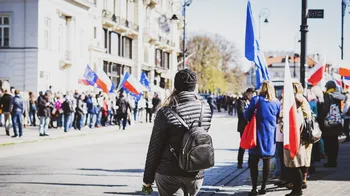
This program aligns with Morocco's New Development Model, which emphasizes sustainable urban development. The initiative will support the implementation of the national municipal waste management and valorization program, known as PNVDM (Programme National de Valorisation des Déchets Ménagers), established by the Moroccan government in 2023.
Goals and Objectives
The primary objectives of the new program include:
- Improving the financial and environmental performance of the municipal solid waste sector.
- Upgrading the management of controlled landfills and extending waste valorization efforts.
- Reducing reliance on landfilling through enhanced waste recovery practices.
- Identifying additional revenue sources for sustainable waste management.
- Supporting monitoring and reporting on greenhouse gas emissions in line with the Paris Agreement.
Moustapha Ndiaye, Country Director for the Maghreb and Malta at the World Bank, emphasized that this operation aims to promote more livable cities while supporting Morocco's climate adaptation and mitigation efforts.
Background on Waste Management in Morocco
Morocco has made significant strides in improving its municipal solid waste management over the past two decades. Urban waste collection coverage increased dramatically from 40% in 2008 to 96% in 2022. However, challenges remain, particularly concerning environmental impacts and financial sustainability.
The Moroccan government has implemented various reforms since adopting Law 28-00 on solid waste management in 2006. These reforms have included strengthening legal frameworks, promoting private sector participation, and establishing a national master plan for hazardous waste management.
Despite these improvements, many municipalities still struggle with outdated infrastructure and insufficient funding mechanisms. The new World Bank program aims to address these gaps by providing technical assistance and funding from various global facilities dedicated to disaster risk reduction and infrastructure advisory.
Sustainability and Environmental Impact
The program is designed not only to enhance operational efficiency but also to ensure environmentally sustainable practices are prioritized. This includes:
- Reducing landfill dependency through improved recycling and recovery systems.
- Implementing environmentally sound practices for landfill gas capture and utilization.
- Enhancing public-private partnerships to foster innovation in waste management solutions.
The focus on sustainability is critical as Morocco seeks to align its waste management strategies with global climate goals. By improving governance and financial structures within the sector, Morocco aims to create a more resilient urban environment that can adapt to future challenges posed by climate change.
The approval of this $250 million program marks a significant step forward in Morocco's efforts to modernize its municipal solid waste management system. By addressing both financial and environmental challenges, the initiative will contribute to more sustainable urban development and improved quality of life for Moroccan citizens.
This investment reflects a commitment not only to improving local infrastructure but also to fostering a healthier environment that supports economic growth and resilience against climate impacts.
For further information:







